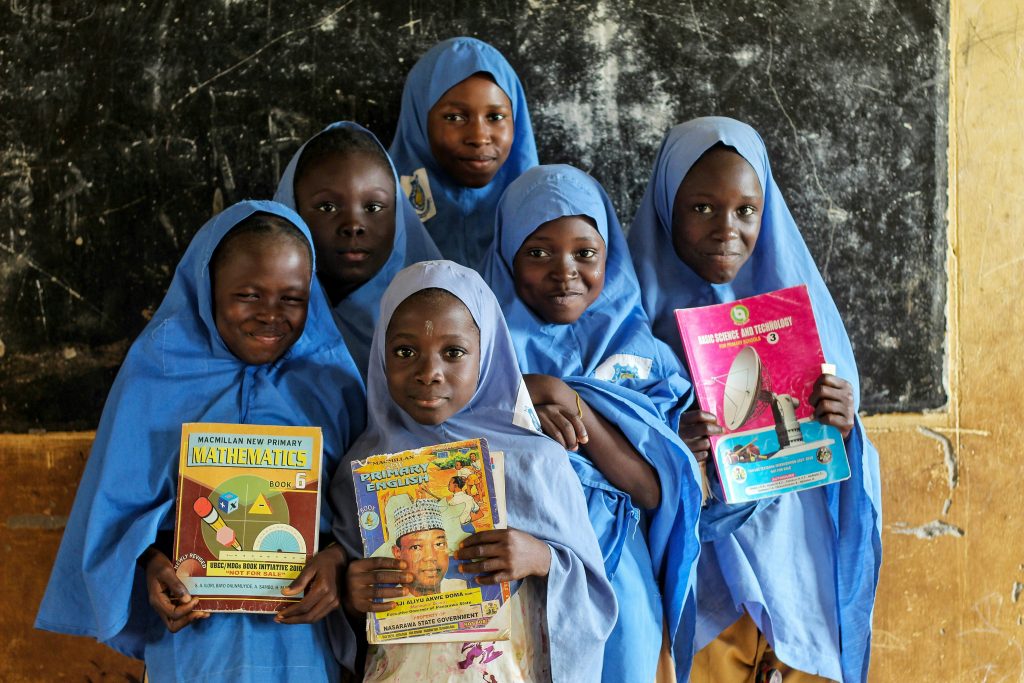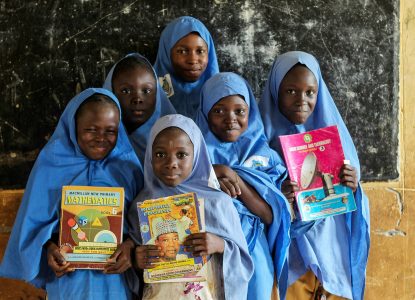By Marianna Richardson, Director of Communications for the G20 Interfaith Forum
– – –
This blog is part 2 of a 5-part series, exploring IF20’s five Priority Areas looking forward to the G20 Interfaith Forum in Cape Town, August 2025.
In an increasingly interconnected world, interreligious tensions pose significant challenges to peace, social cohesion, and human development. Education offers a powerful tool to address these tensions by fostering understanding, empathy, and ethical engagement across diverse faith traditions. Programs such as the Cross-Cultural Religious Literacy (CCRL) initiative and Arigatou International’s Ethics Education and Learning to Live Together curriculum exemplify how targeted educational efforts can transform religious diversity from a source of conflict into a foundation for cooperation.
Problem
Interreligious tensions today are fueled by a complex interplay of ignorance, misinformation, historical grievances, and political manipulation. In regions like the Middle East, sectarian divides between Sunni and Shia Muslims continue to spark violence, while in South Asia, religious nationalism has intensified conflicts between Hindus and Muslims. Across Africa, clashes between Christian and Muslim communities are often exacerbated by economic disparities and land disputes disguised as religious strife. These tensions are not limited to overt violence—they also manifest in subtle forms of discrimination, exclusion, and mistrust within families and neighborhoods.1 Faith, which at its core seeks harmony and human flourishing, is frequently weaponized for power and control. As highlighted in recent interfaith forums, the lack of religious literacy and mutual understanding remains a major barrier to peace, underscoring the urgent need for transformative dialogue and inclusive education.2

Solutions
The CCRL program, developed by the Leimena Institute in Indonesia, has trained over 9,000 educators since 2021, equipping them with competencies in personal religious understanding, comparative religious knowledge, and interfaith collaboration. This initiative has demonstrated success in breaking down barriers between religious communities, particularly through joint activities between Christian and Islamic schools. By integrating religious literacy into mainstream education, CCRL promotes mutual respect and shared civic responsibility.
Arigatou International’s Learning to Live Together program complements CCRL by emphasizing ethics education rooted in interfaith and intercultural dialogue. Implemented in over 40 countries and translated into 13 languages, the program encourages children and youth to affirm human dignity, develop empathy, and foster reconciliation.3 Its pedagogical approach—centered on participatory learning and safe environments—has influenced national education systems in Kenya, Nepal, and Bangladesh.4 These efforts align with Sustainable Development Goal 4.7, which calls for education that promotes global citizenship and a culture of peace.
Beyond education, religious approaches to ethics offer valuable contributions to emerging fields such as Artificial Intelligence (AI). Faith traditions provide frameworks for moral reasoning, justice, and accountability—principles increasingly relevant in AI development.5 For example, Christian, Jewish, and Islamic ethics have been invoked to guide responsible AI use in healthcare, warfare, and data privacy.6 Religious perspectives challenge technocratic paradigms by emphasizing human dignity and the relational nature of ethical decision-making.
Faith communities also play a vital role in addressing gender-based violence (GBV). Religious leaders, often trusted figures in their communities, can influence attitudes and behaviors that perpetuate or prevent GBV.7 Initiatives such as the enditnow campaign by the Seventh-Day Adventist Church and the work of Islamic Relief USA demonstrate how faith-based organizations mobilize resources and moral authority to support women, children, and families.8 These efforts include advocacy for equitable treatment, mental health support, and access to education and healthcare.
To maximize impact, education policies must prioritize social cohesion and trust-building. Integrating religious literacy and ethics into curricula not only counters misinformation and stereotypes but also prepares learners to navigate complex moral landscapes. As global challenges—from polarization to technological disruption—intensify, interreligious education emerges as a strategic investment in peace and human flourishing.
G20 Interfaith Forum Priority
Addressing interreligious tensions through education and enhancing understanding of religious matters is a priority issue for G20 Interfaith Forum (IF20). Working with the CCRL program and Arigatou’s Learning to Live Together curriculum have both been important examples that IF20 has supported.
During the Forum in Cape Town this year, a plenary session will highlight The role of education in leading human development imperatives. This plenary session will focus on education and, more broadly, translating the oft-stated priority of “youth” into effective action. What role does education play with regard to values and social cohesion? How can religion respond to global education challenges, including access, quality, and links to life skills? The discussion aims to link the goals of quality education for all to the challenges of social cohesion and assuring diversity and equality among different communities. What are the roles of religious communities within education programs? The session will highlight examples of programs tailored to these objectives, such as Indonesia’s Cross Cultural Religious Literacy (CCRL) program, Ethics Education, as pioneered by Arigatou International, and South African examples. The challenges of intergroup tensions and efforts to address them, including youth perspectives, will be highlighted.
The Forum will also have a breakout session focused on Education for Solidarity: Cross-cultural Religious Literacy and Addressing Religious Tensions, Violence, and Harmony. With evidence across many different societies of rising social tensions linked to religious as well as ethnic identities, action to address understanding among different religious communities, and between religions and secular components of societies (sometimes termed “religious literacy”), has assumed increasing importance. This working session will center on specific examples from South Africa, South-East Asia, and other approaches, with a view to enrich IF20 action proposals to G20 leaders.
These sessions will be available on the G20 Interfaith YouTube channel by the end of September. Please join us and learn more about this international priority issue.
– – –
Marianna Richardson is the Director of Communications for the G20 Interfaith Forum. She is also an adjunct professor at the Marriott School of Business at Brigham Young University.
—
Notes
- Matius Ho, “Education Programs That Build Social Cohesion and Religious Literacy,” G20 Interfaith Forum, November 2, 2024, https://blog.g20interfaith.org/2024/11/02/education-programs-that-build-social-cohesion-and-religious-literacy/..
- Ibid.
- Arigatou International, “Learning to Live Together Programme,” https://arigatouinternational.org..
- Maria Lucia Uribe Torres, “Ethics Education for Children,” End Violence Against Children, October 11, 2021, https://www.end-violence.org/articles/arigatou-internationals-ethics-education-children-initiative-releases-its-2020-annual..
- Atiqa Fakhar, “Religious Ethics in the Age of Artificial Intelligence and Robotics,” AI and Faith, January 11, 2024, https://aiandfaith.org/insights/religious-ethics-in-the-age-of-artificial-intelligence-and-robotics-exploring-moral-considerations-and-ethical-perspectives/..
- Christos Papakostas, “Artificial Intelligence in Religious Education,” Religions 16, no. 5 (2025): 563, https://doi.org/10.3390/rel16050563..
- Britt Herstad, The Role of Religious Communities in Addressing Gender-Based Violence and HIV (Washington, DC: Futures Group, 2009), https://www.endvawnow.org/uploads/browser/files/The%20Role%20of%20Religious%20Communities%20Addressing%20GBV%20HIV%20-%20USAID.pdf.
- Hifzah Malik, “Ending GBV: Mobilizing Faith Leaders and Communities,” InterAction, December 5, 2022, https://www.interaction.org/blog/ending-gbv-mobilizing-faith-leaders-and-communities/.


